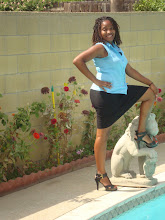"In 1993 a moutaineer named Greg Moretnson drifted into an impoverished Pakistan village in the Karakoram mountains after a failed attempt to climb K2. Moved by inhabitants' kindness, he promised to return and build a school. "Three Cups of Tea is the story of that promise and its extraordinary outcome. Over the next decade Mortenson built not just one but fifty-five schools-especially for girls- in the forbidding terrain that gave birth to the Taliban. Hist story is at once a riveting adventure and a testament to the power of the humanitarian spirit."
Wednesday, October 21, 2009
Thursday, September 3, 2009
Does the media stereotype you?
We are living in a generation where the media is influential on how we perceive things. No matter what our race, ethnicity, gender, age, religion, or sexual-orientation might be, in most instances we are being stereotyped by the media.
When you think of African-Americans, what are the first thoughts that come to your mind? They are loud, violent, ignorant, etc. You might think of them to have exceptional athletic abilities or you might think of them to have musical talent. You ask an African American child what they want to be when they grow up and some of them will reply as to wanting to be an athlete, actress, or a singer/rapper. We get responses like this because that is all the media portrays African Americans as. Yes, some African Americans are loud and ignorant but so are individuals of other races. Being entertainers are not the only "positions" they are capable of holding. Many of them are outstanding leaders holding other career titles. They are lawyers, doctors, engineers, teachers, pilots, architects, politicians, accountants, pastors, businessmen/women, etc. When it comes to violence, we cannot pin that one race and say that one is more violent than the other. It depends on that individual. It matters on what type of person that individual might be.
Recently this week , my class was reading article titled, "Don't Call Me a Hot Tamale" by Judith Ortiz Cofer. She was talking about how she was stereotyped being a Puerto Rican woman raised in New Jersey. She stated how her family still kept their traditions even though they were now living in the US. When she was younger, her mother dressed her clothing that made her look more marure and she felt out of place because it seemed that she was always overdressed. There was a part where she recalled the experience of career day in high school. Her classmates were all dressed in tailored skirts and blouses but she was dressed in too mant accessories and jewlery. She stated that back in Puerto Rico it was custom for the women to dress in flashy or provactive attire because of the tropical climate. What she knew as custom from her home, Americans thought of it as being sexual. They judged her by what she was wearing and because of her skin tone. She talked about her experience of when she was on a bus coming from Oxford University. A man got on his knee and starting singing "Maria" from "Westside Story".
There are many other examples that can be given of stereotypes, especially coming from the media. They chose what they do or do not put on the news. They twist stories around and we seem to fall for everything that they feed to us. It is not right to caterogize anyone in a general form. All people are not the same.
What are your thoughts? Do you feel that you are being stereotyped by the media? If so, how are they doing so? Why do you think that they do it?
Subscribe to:
Posts (Atom)
